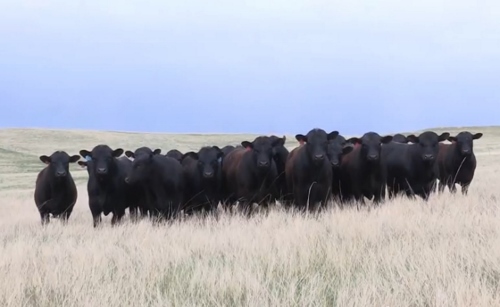 The demand for high-quality Angus cattle is a North American trend. Canadian cattle feeder Ryan Kasko feeds 40,000-head of cattle in his family’s Lethbridge, Alberta, feedyards. He says the high-quality beef trend is growing in Canada as it is in the U.S. He talks about the rationale for quality beef production in his family’s four finishing yards.
The demand for high-quality Angus cattle is a North American trend. Canadian cattle feeder Ryan Kasko feeds 40,000-head of cattle in his family’s Lethbridge, Alberta, feedyards. He says the high-quality beef trend is growing in Canada as it is in the U.S. He talks about the rationale for quality beef production in his family’s four finishing yards.
"If we want to differentiate our product from pork and chicken by producing a higher-quality product, it makes it less substitutable to use uh pork or chicken," Kasko said. "And I think that was just a great way of, kind of, of explaining why we're trying to do what we want to do. We want to create a product that it can't be replaced and so that the consumer can enjoy eating our beef every day and want to come back the next time they, they want to have a great meal, choose beef."
Ten years ago Kasko says they were just like any other commodity cattle feeder, but since then they’ve changed procurement practices at the Lethbridge, Alberta, business.
"One of the reasons for feeding, trying to feed a quality product is for consistency," Kasko said. "And frankly I think that if you're…you still have to select the right genetics and make partnerships with people that are producing cattle that are going to be efficient because that's really one of our number one drivers of profitability. We need to grow a carcass efficiently and at the same time create a quality product, so that's what we're really striving to do and I don't think we have it all figured out yet, but that's everyday that's what we're, we're working on."
Working with a packer partner, they are able to get carcass data back and now share that with commercial suppliers.
Click here to see more...